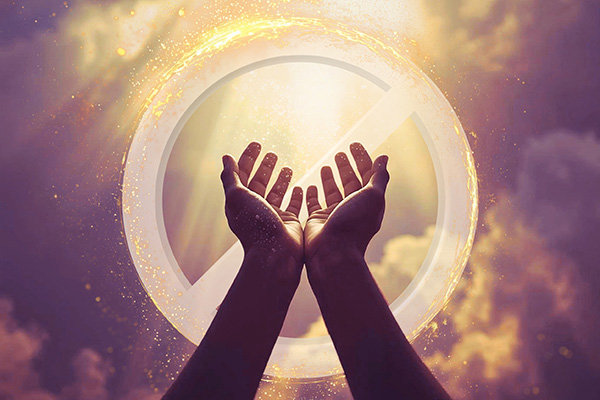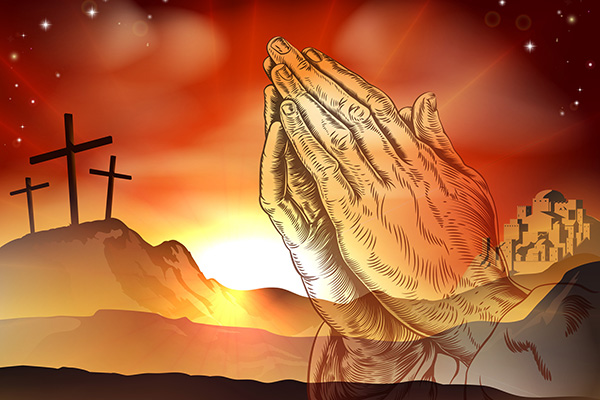self-sacrifice
Are You Erasing Your Blessings?
 The unselfish gifts of our time, money, and resources as well as our labors of love bring us many blessings in this lifetime and the next.
The unselfish gifts of our time, money, and resources as well as our labors of love bring us many blessings in this lifetime and the next.
When we are kind and generous to others, we are also showered with good fortune in return. We know this from the ‘golden rule’ of ‘do unto others’ found in many religions and spiritual traditions.
Buy I have read for many clients over the years who are kindhearted and loving people, but complain about their life being very difficult and deprived. They never have enough money, or they cannot find love, or health and well-being seem to evade them. “I am always helping others, but I get nothing in return,” they might say.
Why is this the case? Why are these generous, caring people not being blessed more often for their good deeds?
Well, my guides have made the spiritual cause of this very clear to me. It is my understanding that we do not only add items of charity and compassion to the list of entries on our ‘chalkboard,’ but we also delete or erase them!
You see, when we do a good deed, it gets added to our list of potential ‘return blessings.’ But, if we go around bragging about it, boasting, showing off, telling people how generous or kind we have been, those good deeds become nullified, neutralized, erased. It loses its metaphysical power and spiritual meaning. It can no longer bless us in return.
How To Have A Peaceful Christmas This Year
A s magical a time of year as Christmas may be, it can still be somewhat stressful.
s magical a time of year as Christmas may be, it can still be somewhat stressful.
Nevertheless, with a little pre-planning, you should be able to get your Xmas off to a good start and enjoy the celebrations to the maximum without experiencing too much stress and drama in the process!
How good is that? Here’s how.
Set Clear Intentions
Let go of the idea that Christmas must be traditional and ‘perfect,’ and that you must make it that way for everybody. Set instead a clear intention for what your ideal Christmas will be.
After that, all you need to do is make plans that go along with your vision. Having established what Christmas really means to you, you can then use it as a guide to prepare your celebrations.
Keep It Simple
Simplicity ensures peace and calm, whereas complexity causes stress and drama. It really is as simple as that! It is imperative that any Christmas plans you make are as simple, straightforward and as streamlined as possible. Doing so should help to create a sense of calm and empowerment, which you will no doubt need to take into the New Year with you.
Are You Holding On To The Wrong Person?
 Many of the questions that callers ask me during readings have one thing in common: how another person is affecting the their health, happiness, and peace of mind.
Many of the questions that callers ask me during readings have one thing in common: how another person is affecting the their health, happiness, and peace of mind.
Despite the differences in the details, the underlying story is often the same: the person’s inner light is dimmed because they have been giving too much power to another person’s choices, moods, or shortcomings.
Many people seem to be in the wrong relationships. They hold on, waiting for things to change and hoping for the best. They postpone plans, silence their own needs and preferences, and test the limits of their patience, believing that a breakthrough will come tomorrow.
However, that is usually not what happens. People do not change for another person, and if they do, it never lasts or works out in the long run. A change driven by the need to please someone else rarely survives the stress of real life. As soon as complications arise, old habits resurface. People can only change for themselves.
Spirit’s guidance on this is always very clear: hanging onto the wrong person — whether a friend, family member, spouse, partner, lover, or boss — prevents us from experiencing the best life has to offer.
When we’re busy monitoring someone else’s actions, we have less capacity for our own personal and spiritual growth. This prevents the amazing blessings waiting for us from coming in, not because the universe is ‘stingy,’ but because our time and attention are fully booked.
We Can’t Always Rescue The Ones We Love
 A topic that often comes up in psychic readings is the client’s concern for someone they love – a child, significant other, sibling, close friend, or even a co-worker.
A topic that often comes up in psychic readings is the client’s concern for someone they love – a child, significant other, sibling, close friend, or even a co-worker.
The problem? Usually the person has chosen a path that is confusing, destructive, or even life-threatening: substance abuse, toxic relationships, unwise career moves, or a lifestyle that just doesn’t make sense to the onlooker.
If you’re nodding your head right now about someone in your own family or circle of friends, you’re not alone. We’ve all been there – watching someone we love make free will choices that, from our perspective, can only lead to pain, loss, or utter disaster.
Maybe they have moved in with someone who is controlling and abusive, or they dropped out of college to move across the country and get married to someone they hardly know. Or maybe they are determined to put their life savings into a shady Ponzi scheme. Maybe they keep repeating choices and patterns that seem so clearly wrong for them.
Maybe you’ve seen the red flags from day one, and your heart is already aching with a kind of spiritual déjà vu…because you know what’s coming. And yet…you feel powerless to stop it.
This is where spiritual teachings can offer both comfort and perspective. According to many wisdom traditions, it’s often the most painful, confusing, or seemingly misguided paths that lead to the greatest soul growth. Sometimes a person must walk through fire or descend into darkness to find their light. And as difficult as that is to witness, it may very well be part of their soul plan.
The Touching Tale Of The Praying Hands
 In the fifteenth century, in a tiny village near Nuremberg, Germany, lived a family with 18 children. Yes, eighteen! To put food on the table for this mob, the father and head of the household, a goldsmith by trade, worked nearly 18 hours a day at his trade, as well as any other paying job he could find in the neighborhood.
In the fifteenth century, in a tiny village near Nuremberg, Germany, lived a family with 18 children. Yes, eighteen! To put food on the table for this mob, the father and head of the household, a goldsmith by trade, worked nearly 18 hours a day at his trade, as well as any other paying job he could find in the neighborhood.
Despite their seemingly hopeless situation, Albrecht and Albert, two of the older children, had a dream. They both wanted to pursue their talent for art, but they were well aware that their father would never be financially able to send either of them to an art academy.
After many long discussions at night in their crowded bed, the two boys finally worked out a pact. They would toss a coin. The loser would go down to the nearby mines and use his earnings to support his brother, who would attend the academy.
Then, after four years, when the brother who won the coin toss finished his studies, he in turn would support the mining brother to also attend the academy – either by selling his artwork or, if necessary, by working in the mines.
They tossed a coin one Sunday morning. Albrecht Dürer won the toss and went to Nuremberg to study art. Albert went down into the dangerous mines and spent the next four years financing his brother, whose creative work at the academy was almost immediately a sensation.
Albrecht’s etchings, woodcuts, and oils were far superior to those of most of his fellow students and even his professors, and by the time he graduated he was beginning to earn substantial fees for his commissioned works.
Tarot Forecast February 2025: Four Of Pentacles
 This month’s card is the Four of Pentacles, symbolizing stability, control, and a strong desire to protect one’s resources.
This month’s card is the Four of Pentacles, symbolizing stability, control, and a strong desire to protect one’s resources.
It speaks to themes of holding on to what you have earned, both materially and emotionally. However, this card also warns against becoming too protective or possessive, which can lead to stagnation and missed opportunities.
The overarching theme for the month is staying in the flow. The Four of Pentacles reminds us that while creating security and stability is important, true balance and a blessed life comes from allowing life’s energies to flow naturally.
Holding on too tightly in an attempt to control everything blocks new possibilities and opportunities, while carelessly letting go completely can lead to instability and chaos.
The challenge for February is to maintain a foundation that is both secure and adaptable — holding on to just enough to guide your path, but remaining open to the unfolding currents of life.
Traditionally, the Four of Pentacles depicts a man sitting firmly on a throne holding four pentacles or coins. He’s holding them firmly, with one balanced on his head, one in his arms, and two under his feet. This image symbolizes material attachment, greed, stinginess, and fear of loss. He is so focused on clinging to his precious possessions that he can’t concentrate on anything else.
Reclaim Your Peace And Power With Healthy Boundaries
 Saying “no” is one of the most powerful things we can do to maintain our personal and spiritual well-being and energetic balance.
Saying “no” is one of the most powerful things we can do to maintain our personal and spiritual well-being and energetic balance.
Many of us are caught up in the daily whirlwind of commitments, expectations, and the constant need to meet the demands of others. For those on a spiritual or esoteric path, this can be especially challenging.
The desire to be compassionate and supportive can sometimes blur the lines between compassion and self-neglect. However, one of the most profound spiritual lessons is this: it is okay to say no. In fact, it is imperative!
Knowing when and how to say no is a critical self-care skill that allows you to set healthy boundaries and protect your time, energy, and mental health. Moreover, it is crucial for our spiritual growth and essential for living a life filled with purpose and fulfillment.
Saying no and standing your ground requires recognizing your inherent worth and honoring your personal limits. Too often we stretch ourselves too thin, trying to be all things to all people. This may come from a fear of disappointing others or a belief that our value is in how much we give. Many of us also feel spiritually obligated to be there for others, often because we are so deeply affected by all the struggles and suffering we see in the world around us.
However, when we put the needs of others ahead of our own without balance, we risk depleting our physical, emotional, and spiritual energy. In such a depleted state, we are of no use to anyone.